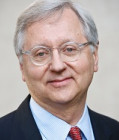A Case for Broadening the Class Origins of Legislators
This memo is part of a series written for SSN Forum on White-Collar Governance.
Nicholas Carnes has written a powerful case for diversifying the socio-economic makeup of national, state, and local legislative bodies. Many decades ago, E. E. Schattsschneider wrote about the chorus of interest groups in American democracy, noting that "the heavenly chorus sings with a strong upper-class accent." Now Carnes suggests that legislators, the gods of the pluralist heaven, have a strong upper-class accent too. If American governments are more responsive to the wealthy than to working people who live paycheck to paycheck, Carnes argues that skewed pressures on government are not the only reason. Imbalanced public policymaking also happens because officials themselves come overwhelmingly from professional, managerial, and business backgrounds. Consequently, one important but under-recognized and underutilized lever for equalizing this imbalance is increasing the number of working people elected to local, state, and national governments.
Filling the void in scholarly research since Donald Matthews' 1954 classic The Social Background of Political Decisionmakers looked into whether it mattered that working-class Americans were all but absent from our political institutions, Carnes has taken on a herculean task of identifying and building data sets that can give him some purchase on the role of class in economic policy making – and then analyzing those data with sophistication and nuance. He is careful to qualify his findings and to acknowledge the assumptions behind his analysis and the inferential leaps involved in projecting policy changes that would flow from a larger presence of working-class representatives. But his bottom line is crystal clear: individuals with working-class experience have policy priorities and views distinctive from white-collar employees. Many people with working class experience have the requisite skills for public service, and on the rare occasions when they run and are elected, they are more responsive to fellow Americans with lower incomes and wealth. Making a vigorous case that recruiting and electing working people to public office is not a pipe dream, Carnes maintains that Americans who are concerned about political and economic inequality have good reason to turn their scholarly and advocacy energies to increasing the number of officials from working-class backgrounds who can serve at all levels of U.S. government.
Much of Carnes's argument and analysis is persuasive and compelling, but some readers will find reasons for questioning it. Most striking is the relative absence of working people in Congress, not just today but throughout our history. Two percent is the norm now just as it was 50 and 100 years ago. This is a sobering constant confronting those who aspire to increase their numbers five or ten-fold. In the face of such stable, low percentages of representatives from working class backgrounds, is it realistic to invest heavily in a strategy of greatly boosting the percentage? To be sure, the numbers are higher in some state legislatures and city assemblies, but can greater blue-collar representation at those levels be leveraged to expand such representation at the national level, where most major economic policies are formulated?
The very low two percent level of past blue-collar representation in Congress also poses an analytic problem, because the very small number of legislators from non-white-collar backgrounds weakens the significance and reliability of the statistical estimates of the impact of working-class backgrounds on attitudes, behavior, and policy outcomes in Congress. When Carnes controls for powerful independent variables such as legislators' party affiliations and the characteristics of their district constituencies, the causal strength and significance of the class backgrounds of legislators often weakens.
Looking at the matter more broadly, in the present-day Congress, it is hard to believe that adding working-class members irrespective of party would make a significant difference. Politics is team play. Party means everything. Republicans of working-class origin such as Chuck Grassley and Orrin Hatch, both of whom appear in one of the key Carnes data sets, have not resisted the ideological extremism of their party on economic or other issues in recent years. In this era of partisan polarization driven largely by the Republican Party's lunge toward the far right, a more explicit partisan counter-strategy for confronting economic inequalities strikes me as a better bet. Democratic team play to push back on Republican efforts that benefit the wealthy can, in short, do more to improve the representation of blue-collar values and need than sprinkling Congress with a few more representatives from working class backgrounds.
Carnes is a sophisticated analyst who is certainly well aware of the impact of hyperpartisanship and the radicalization of the Republican Party. I suspect his goal is more long term – to shift the sensitivities and priorities of both parties by adding more socio-economic diversity to representative bodies. It is an indirect and long-shot strategy to advance the values he holds dear, but by no means an inconsequential one.
